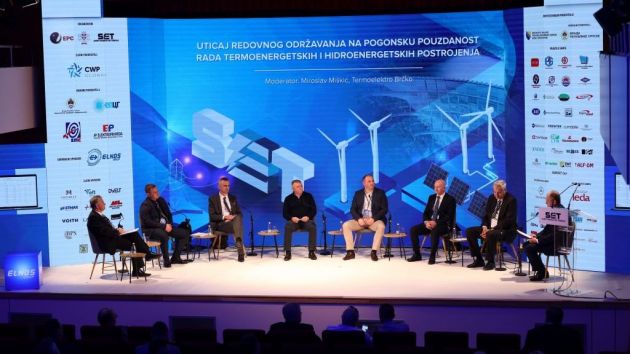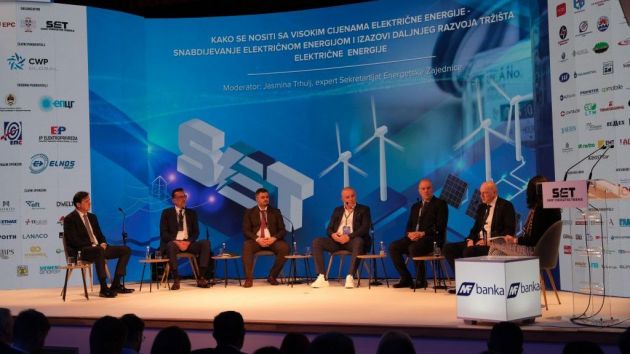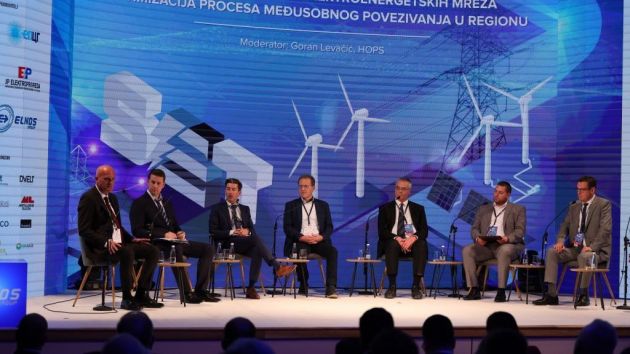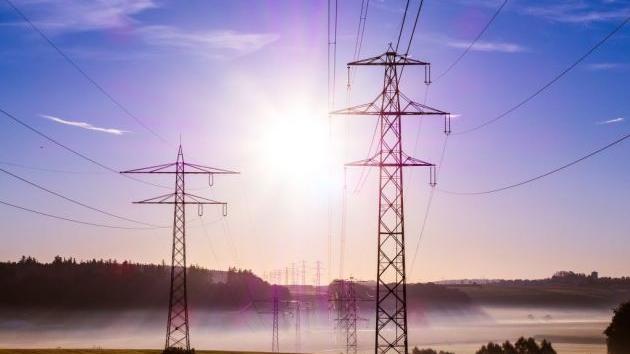SET 2023: Virtual Power Plants and Development of Day-Ahead Market Contribute to Greater Flexibility and Better Integration of RES
Source: eKapija
 Friday, 31.03.2023.
Friday, 31.03.2023.
 11:18
11:18
 Friday, 31.03.2023.
Friday, 31.03.2023.
 11:18
11:18
(Photo: SET/3D Media)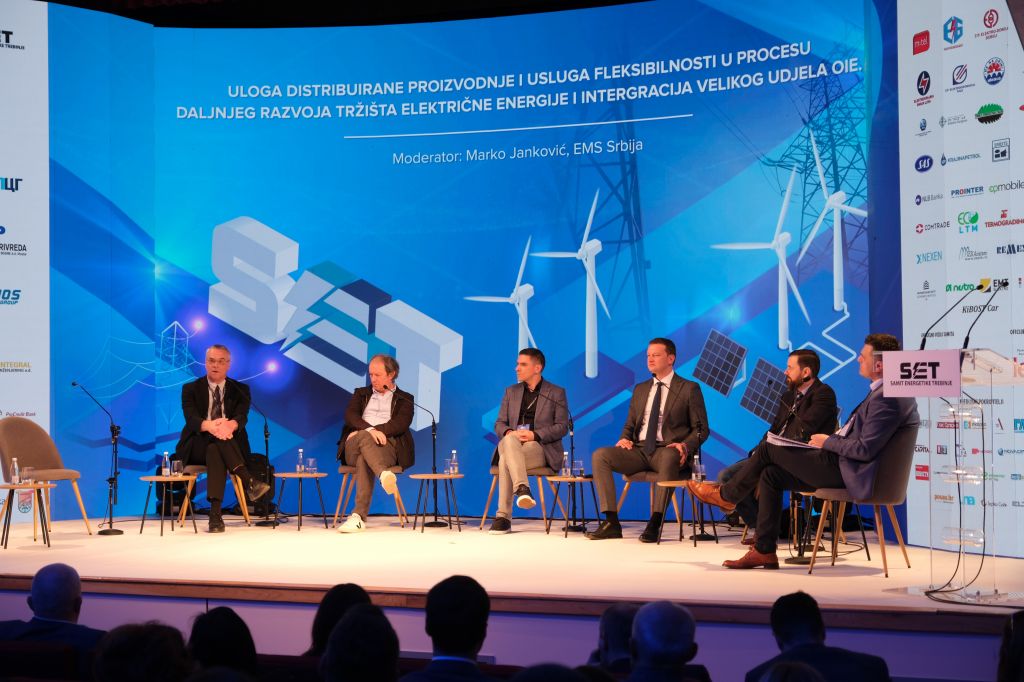

It is precisely the integration and the inclusion of users on the distributive level in the market of electrical energy and the energy sector in general that will be a true challenge and an indicator of whether we are on the right path. The goal we are all together striving for from the beginning of the liberalization of the market is the so-called social welfare – the general well-being for all users, primarily in the biggest category of system users, which consists of active purchasers.
Flexibility services, whether they are traded, aggregation, as well as storage facilities and their potentials, were discussed by the participants in the panel: Davor Bajs, the electricity infrastructure expert at the Energy Community, Milos Mladenovic, the managing director of the day-ahead organized market in Serbia (SEEPEX), Marko Lasic, the CEO of KOER, Nemanja Pandurevic, the general director of the Independent System Operator in Bosnia and Herzegovina (NOSBiH), and Mladen Apostolovic, senior portfolio manager.
The Energy Community is actively involved in the development of the market of electrical energy in the region. An interesting study has also been completed, which deals with the services of flexibility of the electrical energy system in the decarbonization process.
– We completed the study last year. It was a study of the sources of flexibility for the purpose of supporting the decarbonization of the countries that are parties to the Energy Community treaty. The study provided an overview of all the potential sources of flexibility. It should be the ability of the electrical energy system for the production to be equalized with the consumption at every moment so that the frequency would remain at 50 Hz. Ever since three-phase alternating current systems have existed, so has flexibility and there have always been sources for the regulation of the frequency and the power. It’s nothing new and we have known it for 80 years now. What’s new is that the problems are now intensifying with the integration of variable renewable energy sources. It will now be a bigger challenge how to balance the system. The bigger the integration of renewable sources is, by which I mean the wind and solar power, the more demanding the flexibility issues are. The study itself has provided an overview of all the potential sources of flexibility, which is an incredible amount of technical, non-technical, financial, regulatory measures and activities – clarified Davor Bajs of the Energy Community.
Bajs emphasizes that the study has helped reveal the problems that the producers have regarding cross-border capacities, even though the infrastructure exists. He adds that the flaw of the study is that its preparation started before the crisis, so it pointed to new gas power plants as well.
Virtual Power Plants
There’s a lot of talk in the region about virtual power plants in Bosnia and Herzegovina. Nemanja Pandurevic, the general director of the Independent System Operator in Bosnia and Herzegovina (NOSBiH), clarifies this concept.
– Guided by the idea that it is necessary to carry out a further integration of the market, first into the regional and then in the pan-European market, we were aware that we had not finished the initial job, which was to open a local, state market. In that respect, the situation was that the producers of electrical energy, at the distribution level, did not have the right to choose the balance-responsible party when selling their electrical energy. When the market rules were established in 2016, the producers only had the option of selling their electrical energy and sign a purchase agreement with one of the three power companies in BiH. That kind of a relation was based on non-market principles. The agreement validity period was up to 12 years in FBiH and up to 15 years in RS, with a clearly defined fixed purchase price. That price did not follow the trends of electrical energy in the market and, when the prices jumped in mid-2021, there was a great need of the producers of electrical energy to maximize their profit. However, at the moment, we didn’t have the technical possibilities that would enable us to provide them with it. Through extensive consultations that we had with all three power companies and with regulators on both levels, we created a model which is based on a system of distributed sources of electrical energy. They could be harmonized to the minimum level of 1 MW in order to be displayed in our system – Pandurevic says.
He adds that there are currently seven virtual power plants in BiH and that they are essentially balance-responsible parties. Through these power plants, a producer of distributive energy can choose who to cooperate with, as well as under which conditions and at what price.
Whereas, in BiH, small producers are in the focus of aggregation, Croatia provides an entirely different example.
– In early 2019, KOER commenced the development of a technology platform which we intended to help manage the complexity on the side of the consumers, so, we were already aware that, through the economic transition, we will have to have additional entities which will manage the consumption and connect the electrical loads and gauges with the markets. That also coincided with the pilot project of the transfer system operator HOPS, which, at the time, opened the market of side services through that pilot project, even though there was still no legal basis for it. Through the pilot project, individual, large consumers were the first to start offering their flexibility in the balance market. At the end of 2020, we signed the agreement on providing the balancing services, that is, side services to HOPS, which coincided with the presentation of a new law in the market of electrical energy, where, for the first time, we got the definition of an aggregator within the law – clarifies Marko Lasic, the CEO of KOER.
(Photo: SET Trebinje/3 D Media)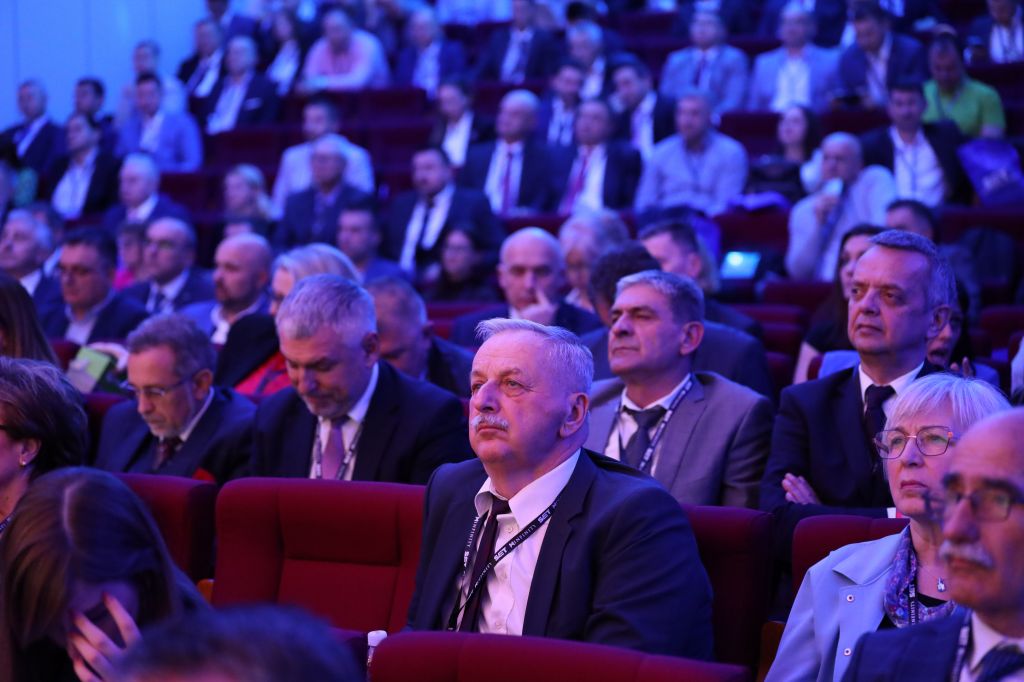

Flexibility in the Electrical Energy Market
Milos Mladenovic, the managing director of SEEPEX, points out that two key documents have been made public by the European Commission and expert bodies in the past months. The first is the so-called “digital energy strategy”, and the other is the document which has to do with the changing of market design, as a consequence of the energy crisis last year.
– All the participants got the task from the European Commission to analyze the existing “market design”, which was the most important topic, and on the other hand, to propose new measures, or potentially new market segments that will aid the green transition. Regarding the first digital energy strategy, the need to go even further has been recognized, following the “spot market” and the “market coupling process” and the “single spot European market”, which, during its inception, was designed as the “cherry on the top” of the whole “market design”. First, it has been recognized by this other paper that the most important thing is that the “market design” is excellent. So, that the system of marginal reference prices, which was quite disputed during the high crisis, was the only adequate one to provide the right signal. That is very important and that forced the entire European structure to consider new solutions. Also, the need to go further has been recognized, “out of the box” in considering the flexibility market and to move toward the blockchain technologies that would enable integration, as well as the integration of consumers to the device itself.
He adds that, in that strategy, the flexibility market has been once again emphasized as a new market segment which is an important tool in the sustainable European tradition.
The next step is the implementation of “market coupling”. We expect help from our friends from the Energy Community to support our efforts to start with the first “day-ahead coupling” as soon as 2024.
He is glad that the “day-ahead” markets are finally to open in the region as well – soon in Montenegro and North Macedonia, and SEEPEX also offers all help to Bosnia and Herzegovina too.
Mladon Apostolovic, senior portfolio manager, believes that flexibility is the end goal that we have to reach gradually.
– Time is passing us by in the region. We now have the integration of renewable sources as an obligation and part of the energy transition toward renewable sources, and we still haven’t completed the integration of wholesale markets. The supplier in the market serves to enable “small” participants in the market, which don’t have enough infrastructure or time or qualified staff to access the markets and other platforms that are needed for the placement of electrical energy on the market. When we say market, that’s why “day-ahead” markets are very important. I hope that, but the end of the year, it will also be solved for BiH, so that we would know what the final status is, because that production is not even.
He also mentions another important thing we don’t have, which is part of the communication and telecommunication infrastructure – real-time measuring is needed.
The moderator Marko Jankovic of Elektromreze Srbije highlights as a conclusion “that there is no development of the flexibility market and the inclusion of distributive users without a smarter distribution network. That should be the message.”
ADEX Regional Market
Mladenovic points out that the project of the ADEX regional market has been successfully completed with partners from Slovenia – BSP.
– The first result of that synergy will be established within the daily market in Serbia, because, without that context, it would be very expensive, and if it’s expensive for us, it’s going to be expensive for the participants as well. The first benefit will be visible after six months, and the other important benefit will be the transfer of BSP clearing to ECC, which is possibly an exclusive. That’s very important for all participants in SEEPEX, because all SEEPEX and BSP participants will also have access to both markets through “single membership”. For example, Elektroprivreda Republike Srbije, which is not present in the European Union, is present on SEEPEX through the ECC infrastructure and will automatically be able to trade in the EU market, that is, in Slovenia, with some legal and regulatory conditions. Those are the short-term goals and they are very visible from the simple bilateral synergy. We are open to all partners in the region. SEEPEX was not a project, it was a vision and an idea to offer the best service to the entire region. Unfortunately, politics can sometimes overshadow the economy and business. We’ve had to turn to our partners in the EU. The “regional market” mantra should be abandoned, because it is out of fashion. We have a pan-European market and we are heading for it. I hope that our first coupling will take place in 2024.
Let us remind that the Trebinje Energy Summit 2023 was held between March 22 and 24, organized by Elektroprivreda RS, the City of Trebinje and the company SET.
The eKapija portal is a media sponsor of the Summit.
More about the panels and events can be found in a special section at the link available HERE.
Slobodana Subara
The rest of the panel can be viewed here:
Tags:
SET Trebinje
EMS
Independent System Operator in Bosnia and Herzegovina
SEEPEX
KOER
Energy Community
Davor Bajs
Miloš Mladenović
Marko Lasić
Nemanja Pandurević
Mladen Apostolović
Marko Janković
flexibility in the process of further development of the electrical energy market
electrical energy market
electricity market
production of electrical energy
distribution of electrical energy
RES
renewable energy sources
purchasers of electrical energy
PPA agreements
virtual power plants
Trebinje Energy Summit
Comments
Your comment
Naš izbor
Full information is available only to commercial users-subscribers and it is necessary to log in.
Follow the news, tenders, grants, legal regulations and reports on our portal.
Registracija na eKapiji vam omogućava pristup potpunim informacijama i dnevnom biltenu
Naš dnevni ekonomski bilten će stizati na vašu mejl adresu krajem svakog radnog dana. Bilteni su personalizovani prema interesovanjima svakog korisnika zasebno,
uz konsultacije sa našim ekspertima.


 Izdanje BiH
Izdanje BiH Izdanje Srbija
Izdanje Srbija Serbia Edition
Serbia Edition Serbische Ausgabe
Serbische Ausgabe


 News
News







